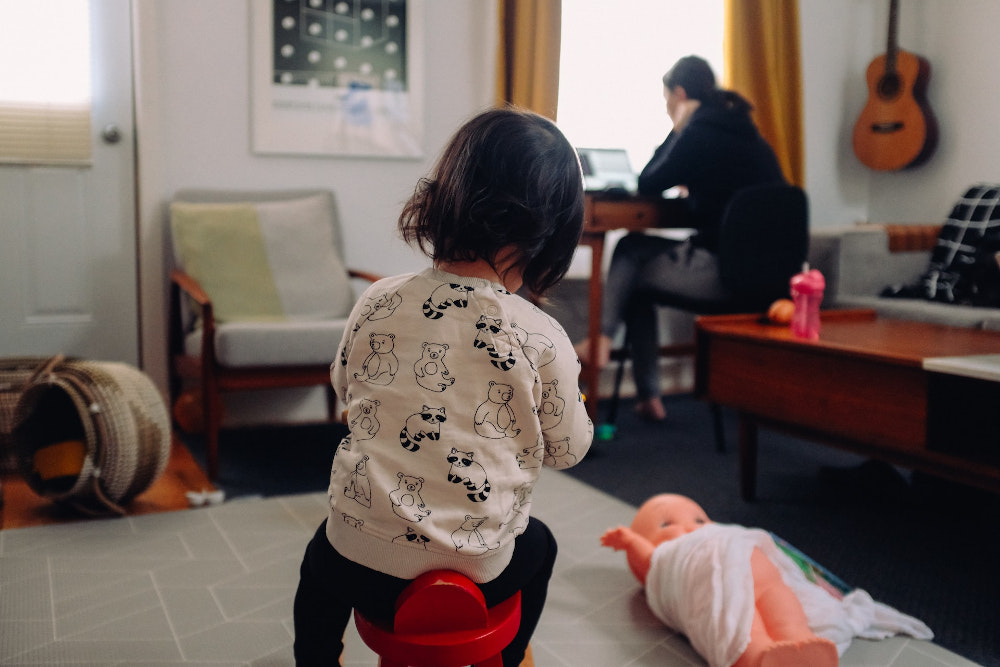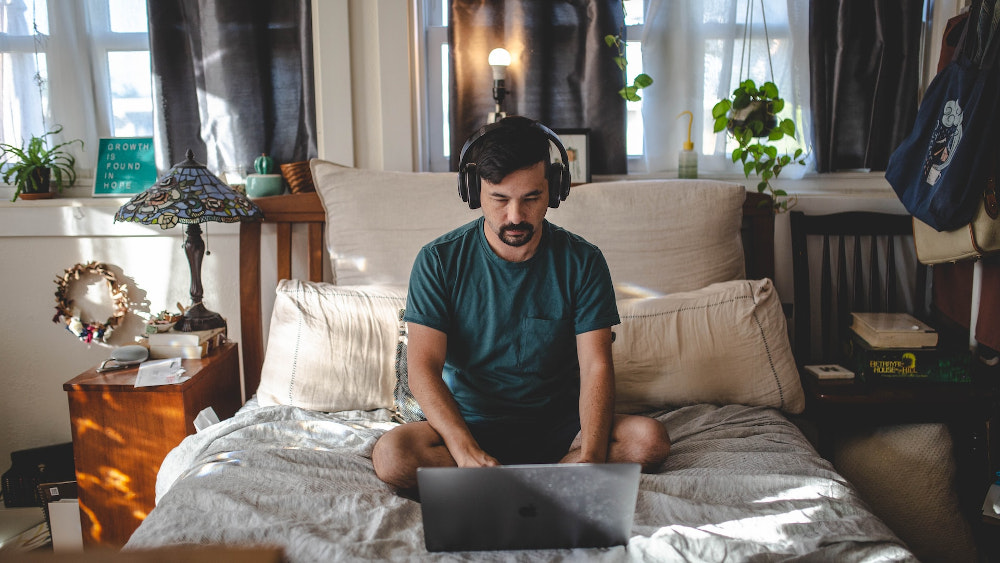Blog
Trouble Focusing when Working from Home? Let us Help!30 Aug 2022

For many of us, being able to focus was always a challenge - bigger or smaller. Now, we're asked to do it while working from home, either full-time or partly. Depending on what it was that's been making concentrating on the task at hand difficult for you, moving work to your home can either help a bit or make things much worse. We'd argue that the most typical reasons for focus difficulty are all to do with one factor only - you're allowing distractions to take place.
Desktop notifications about new emails and tasks, phone/video calls, colleagues visiting your desk - we're all too familiar with these culprits for poor focus at the office. But when moving work to your house, they can change, for better or worse. Instead of colleague visits, you now have kids treating you as if you were on a day off. The dog wants to play, as it sees you sitting idly at the desk, and to the endless stream of emails and calls, you can now add the distraction of having a kitchen full of wonders a few steps away, the TV and game sets at an arm's reach, and - of course - a comfy sofa nearby. So, you're always in between comfort and pleasure on the one hand and parenting/house chores on the other.
What to do? Here are a few ideas to try:
Define your work time & space at home
If you have people at home during your working hours, try going hybrid: only work from home a few days a week. Also, if possible, work from a "study" room - meaning, a room with no people and closed doors. When no study room is available, make it clear to the family that you are not to be disturbed outside your break time. If that does nothing, make it clear that when your headphones are on, you're unavailable to them - regardless of whether you're on a call with someone or not.
Maintain a tight work/break schedule
It will let you limit the 15 daily cravings to make a sandwich to a minimum. Say, a 10-minute break between each 2-hour work streak and a lunch break in the middle. A structure like this might help you negotiate with yourself: if you focus for 2 hours, you'll be rewarded with a break away from the desk - a coffee, a snack, or a quick lie down on the sofa.

Additionally, working from home makes it very easy to trick oneself out of a healthy lifestyle, e.g., eating too much or too little, not going out of the house, and caring less about personal hygiene/appearance/exercise. For your mental well-being, we'd advise treating WFH the same as working from the office: get started on time, be fully dressed, and plan your meals. After the work is done - at a set time - go out!
Organize your response to notifications
So, the notifications are flooding your PC at all times - take a moment to decide whether they are all necessary. Some choose to disable all notifications, assuming that if something highly urgent does happen, they will simply get a phone call. Meanwhile, they're free to carry on with their planned tasks.
Of course, whether this is a workable idea will depend on your job/role. A less radical but still focus-oriented approach will be to bulk reading emails and notifications to just 2 or 3 times a day. Fitting them all into a session will still give you long periods of quiet to work on your scheduled items. You can also plan focus sessions with a software add-on, making sure you don't go overboard and forget to view new messages or assignments in between concentrated work spurts.
Forget multi-tasking
Multi-tasking is just another kind of distraction. If you've decided to act on task A, do that. The fact that someone has just emailed you, assigned you another item, or asked your opinion, should not drag your attention away from what you've started. Finish it, or at least reach a point of a natural place to pause, and then see if the new things are urgent.
If you keep working on the started job and add processing another to it, it will likely result in mistakes and lower quality of work on both those items and longer total time spent on each element. That is because every time you switch between the tasks, you're adding time needed to get back into the subject, context, and what you were about to do with it next. Consider using the Kanban method, which makes it natural to get a task finished or bring it to a natural pause point - e.g., between one completed checklist item and another not yet begun - before you grab another job from the "to do" column.
Give these approaches a try - the risk of failure is none, while you have a lot to gain: peace of mind, higher work efficiency, more time off, a clearer head, and maybe even a healthier lifestyle! Working from home has great potential to save you time and effort, but harvesting the benefits needs to be carefully orchestrated.
Sign up for a 14-day free trial
to test all the features.
Sign up now and see how we can help
your organization deliver exceptional results.